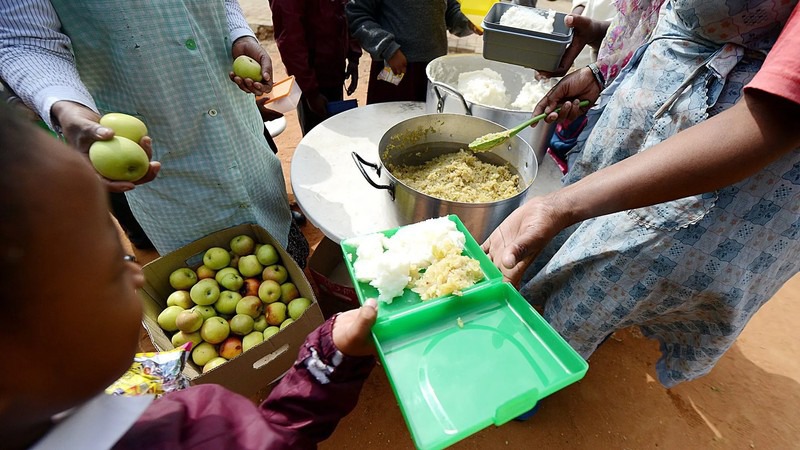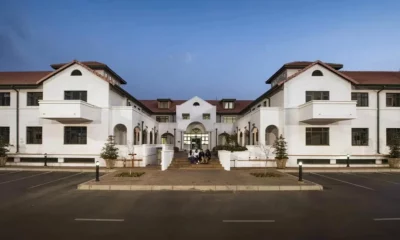News
Suppliers say Gauteng’s school meal chaos is starving businesses and threatening learners

Hundreds of thousands of Gauteng learners could soon go without daily school meals as service providers accuse the provincial education department of corruption and non-payment. At the centre of the growing controversy is the Gauteng School Nutrition Programme, where suppliers say irregular tender processes and delayed payments are crippling their ability to feed pupils.
Suppliers speak out: “We can’t keep feeding children on debt”
Lisa Sukdev, speaking on behalf of a group of affected meal suppliers, told IOL that some companies have not been paid for months, forcing them to take out loans and overdrafts just to stay afloat. She says the situation has reached a breaking point.
“The business of school feeding has become impossible to maintain,” Sukdev explained. “We are financing supplies ourselves while payments are delayed for months. Some providers were only paid in May for meals delivered last October.”
Sukdev alleges that the Gauteng Department of Education (GDE) has ignored procurement laws and awarded tenders to companies that cannot even be found on the official CIPC database. “We’ve seen bids go through without the required documentation. Minutes of evaluation meetings and appointment letters haven’t been provided. It’s all irregular.”
Suppliers say the contracts are meant to be compliance-based, taking into account stock capacity, storage facilities, and staffing. But according to Sukdev, these requirements are being ignored. “This isn’t about who offers the cheapest quote. It’s about who meets the criteria to feed children safely and consistently. Yet, those standards are being bypassed.”
Growing hunger risk in Gauteng schools
The impact, she warns, is immediate and devastating. Some service providers feed up to 100,000 learners each month. As the financial strain deepens, many are on the verge of halting operations altogether.
“The Department is quietly reallocating contracts to new suppliers without explaining why,” Sukdev said. “It’s becoming clear that familiar names and personal networks are influencing who gets these tenders. That’s not only unethical, it’s dangerous because children are the ones who will go hungry.”
She says the frustration extends beyond finances. “Even the highest offices aren’t responding to our calls. They are failing our children, and small businesses are being pushed out.”
Government response: delays blamed on funding strain
In response, Gauteng Education spokesperson Steve Mabona said the department is aware of the challenges and is working to resolve them. He explained that while the National School Nutrition Programme (NSNP), which provides meals for learners at no-fee Quintile 1 to 3 schools, remains operational, the province’s extended nutrition programme has come under pressure.
That extension, which supports learners in Quintile 4 and 5 schools, has struggled amid rising food demand and shrinking budgets. Mabona said the number of vulnerable learners needing meals has grown significantly due to worsening economic conditions.
“The rapid increase in learners needing support, combined with budget reductions, has caused payment delays to some service providers,” Mabona said. “The Department is engaging directly with affected suppliers and remains committed to clearing all outstanding payments.”
He added that the provincial government is now reviewing the school quintile system to better reflect current economic realities and ensure that funding reaches those who need it most.
A deeper issue: when bureaucracy meets hunger
This controversy highlights a bigger crisis: the widening gap between government processes and community needs. South Africa’s school feeding programmes are vital safety nets, ensuring that millions of children receive at least one nutritious meal per day. For many learners, it’s their only meal.
When those systems falter, through corruption, inefficiency, or neglect, it’s not paperwork that suffers. It’s children.
Public concern has been mounting on social media, where parents and educators have called on the GDE to act swiftly. The issue is more than a procurement dispute; it’s a question of moral responsibility.
If allegations prove true, the consequences could stretch far beyond unpaid invoices. They could shape the physical and mental well-being of a generation already facing economic hardship.
Also read: New School Admission Rules Protect Undocumented and Pregnant Pupils
Follow Joburg ETC on Facebook, Twitter, TikT
For more News in Johannesburg, visit joburgetc.com
Source: IOL
Featured Image: DA Gauteng



























